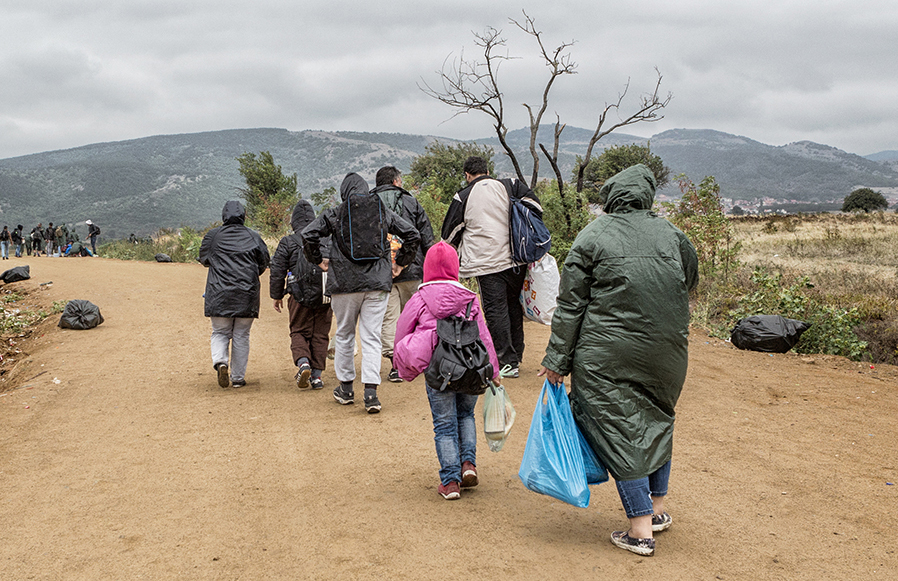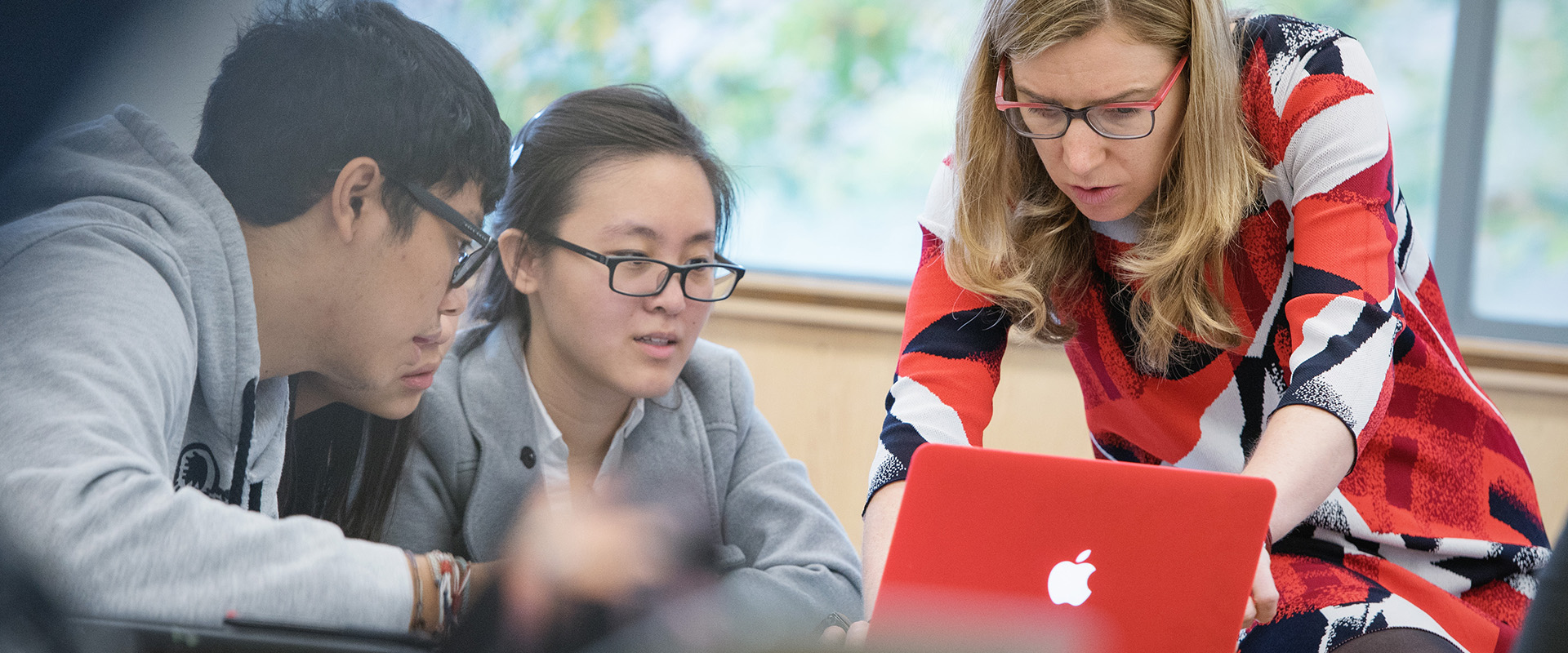Taking learning outside of the classroom
When people think of augmented reality, they often think of video games like Pokémon Go or Harry Potter: Wizards Unite. But a geography instructor at the University of British Columbia has harnessed the same interactive technology to teach students about something of global importance: the Syrian Civil War.
Along with a team of researchers and the Emerging Media Lab, faculty member Siobhán McPhee created an augmented reality (AR) experience using a cellphone platform developed by Motive.io, a Vancouver startup. Journey With Me uses motion, sound and video to help McPhee’s fourth-year Geographies of the Middle East students literally walk through the experiences of five real-life Syrian refugees. On their journeys to Canada, they were forced to make some harrowing choices, which the students make along with them. Not only do students hear their stories, they participate in their journeys that lead to them running away from bombs, for example, or listening to the thump-thump of the storyteller’s heartbeat as they anxiously try to cross a border.
The goal is for students to understand not just the history of the war but the emotional consequences for those involved. “I want students to be immersed in an experience, which will create connections and empathy,” McPhee explained.
“I want students to be immersed in an experience, which will create connections and empathy.”
Farhan Hussain, a research assistant who worked with McPhee on the project and now works for UBC Studios, said that the tool helps to personalize an experience that many students only see on the news. “As you make choices alongside these people, you almost become part of their story,” he said. “It’s more empathetic because you have a one-on-one human connection.”
According to McPhee, augmented reality is an emerging field for teaching and learning in the social sciences and humanities at UBC. She showcased this technology as part of the Pedagogy Hub at the Congress of the Humanities and Social Sciences, which took place at UBC from June 1 to 7.

Innovative teaching and learning
McPhee’s AR experience is innovative because it puts a different spin on the traditional concept of inviting guest speakers into the classroom to talk to students. McPhee created it to send her students out of the classroom and encourage them to become more active learners.
Augmented reality and cellphone technology help facilitate that. “It’s taking teaching and learning outside of the four walls of the classroom, a lab, or a tutorial, and allowing learning to take place anywhere,” she explains. It’s also sustainable. “This is something that will live as long as I teach the course.” The speakers don’t need to come into her classroom again and again to share their often-emotionally challenging stories with new classes.
McPhee also uses augmented reality in several other courses that she teaches. She has used AR as part of a political economy history walking tour of downtown Vancouver, and is developing an experience using the same AR technology involving the history of Vancouver’s Chinatown. A colleague teaching a physical geography class uses the same augmented reality platform to allow students to see Pacific Spirit Park throughout the seasons. While it may be summer now, the app lets students see what a tree would look like in winter, and walking around triggers different audio explanations.
“As you make choices alongside these people, you almost become part of their story.”
Indeed, augmented reality could be adapted for teaching and learning across diverse disciplines. “This is a way of teaching that people might not know about,” said Laura Moss, a professor in UBC’s English department who was also the Academic Convenor of Congress 2019. “In a large classroom, how do you make students feel like they’re actively participating?”
Moss noted that 2019 was the first time Congress had a dedicated space for people to discuss teaching practices and issues in the classroom. “We can learn from each other,” she said. “The Pedagogy Hub is a place for thinking about teaching in creative and constructive ways and focusing on a lot of the excellent research that’s going on.”
No-fear technology
McPhee said that creating this kind of augmented reality experience is easier than you might think. “People are scared of technology, but it’s actually very accessible,” she said. The Motive.io platform doesn’t require any coding, so her interdisciplinary team of students didn’t need coding skills to use it.
McPhee noted that technology like AR should be used for the right reasons—not just because it’s the latest thing. “You should have very clear objectives,” she said. “What do you hope the students will get out of it? Why couldn’t you do this with a pen and paper?” According to students who provided feedback on Journey With Me, the experience did achieve its objective of creating empathy for Syrian refugees.
McPhee encourages everyone to be open to new approaches to teaching and learning. “We really need to engage our students,” she said. “We don’t always need to go with the way it’s always been done.”
This technology was featured at Congress of the Humanities and Social Sciences, held at UBC from June 1 to 7, 2019. Those interested in McPhee’s project can try various augmented reality experiences by downloading them through McPhee’s website.


